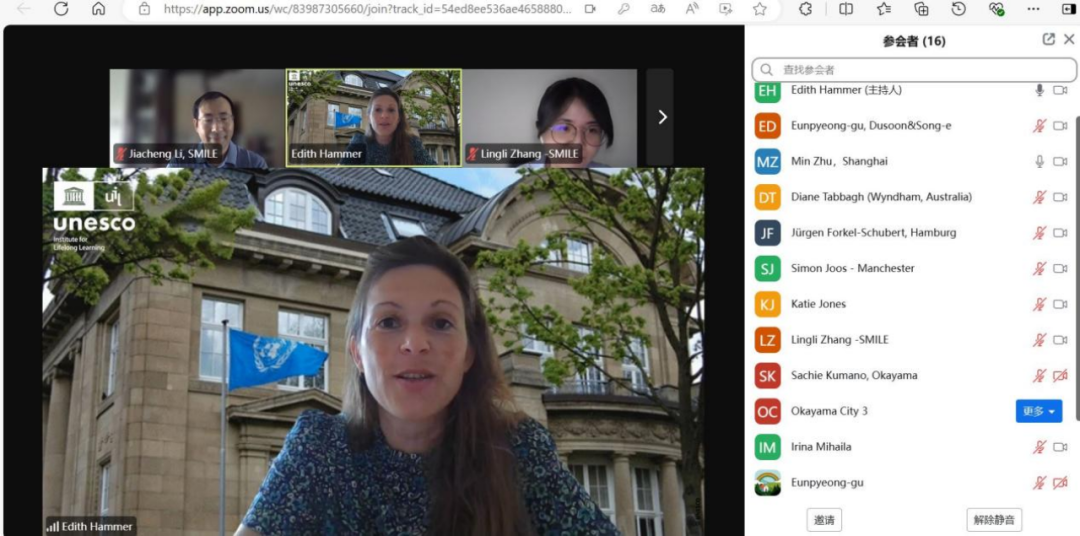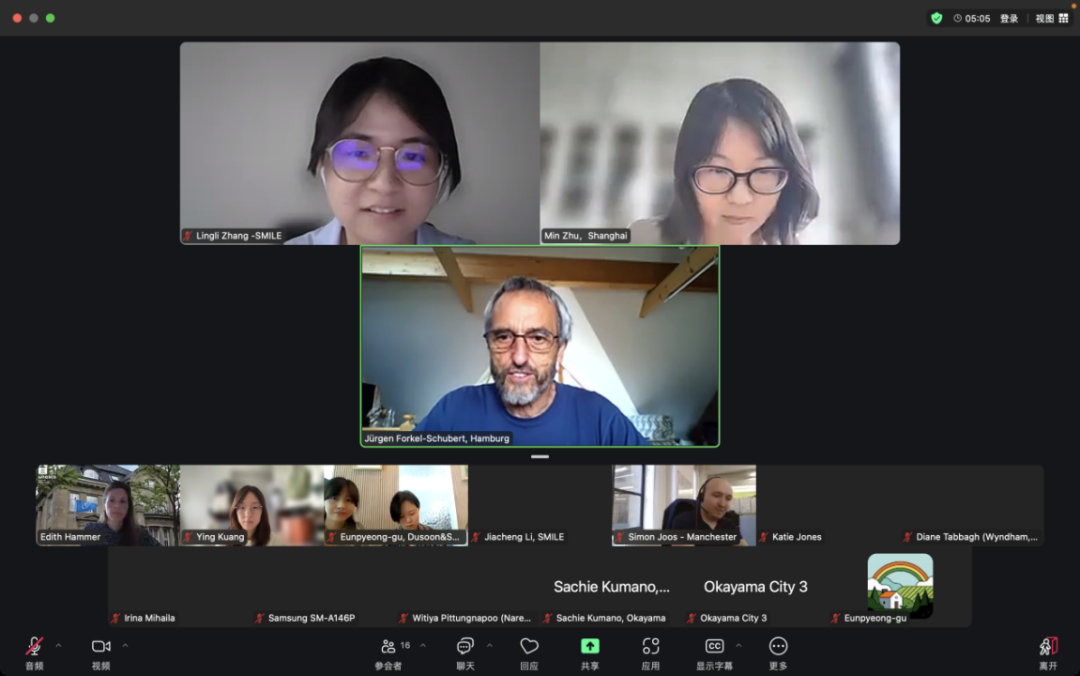East side of 7th Floor, No. 3663, North
Zhongshan Road, Shanghai, China, 200062
Tel: +86 21 6223 2322
www.smile.ecnu.edu.cn
On the afternoon of July 10, 2024, commissioned by the UNESCO Institute for Lifelong Learning (UIL), the Shanghai Municipal Institute for Lifelong Education (SMILE) of East China Normal University, representing the Shanghai Education for Sustainable Development (ESD) project team, organized and chaired the fourth working group meeting (Working Group Meeting on ESD) of the year. The meeting aimed to continue promoting information exchange, problem discussion, and experience sharing among ESD working group members. Professor Li Jiacheng from SMILE, Associate Professor Zhu Min, the chief researcher of the Shanghai ESD project and a faculty member at the Institute of Vocational and Adult Education ofEast China Normal University, as well as ESD project team members Kuang Ying and Zhang Lingli, attended the meeting. Dr. Zhang Lingli chaired the meeting.

The working meeting had two main agenda items: First, welcoming new member cities. The ESD working group originally included partners from China, Germany, Finland, Greece, South Korea, Japan, and Australia. With the joining of representatives from Thailand, Romania, and the United Kingdom this time, the partner networkwas further expanded, and all members are committed to advancing education for sustainable development. Ms. Edith Hammer, the ESD project manager of the UNESCO Institute for Lifelong Learning, and Mr. Jürgen Forkel-Schubert, a senior ESD expert from Hamburg, Germany, briefly introduced the working group's basic orientation, shared goals, main responsibilities, and operational mechanismsto the new member cities. Second, the meeting discussed the progress of the ESD working group and offering suggestions and recommendations for the preparation of the 6th International Conference on Learning Cities (ICLC 6). Participants exchanged ideas through free discussions on how to enhance the functionality of the ESD working group, improve its network effectiveness, empower sustainable development for more cities, and prepare for ICLC 6.
This meeting strengthened communication and interaction between new and existing member cities, and further defined the mission and responsibilities of the ESD working group within the global network of learning cities. It also expanded and solidified the platform and cooperative network for member cities to jointly promote practical, theoretical, and policy innovations in global education for sustainable development.

Contributed by: Kuang Ying, Zhang Lingli
Reviewed by: Li Jiacheng